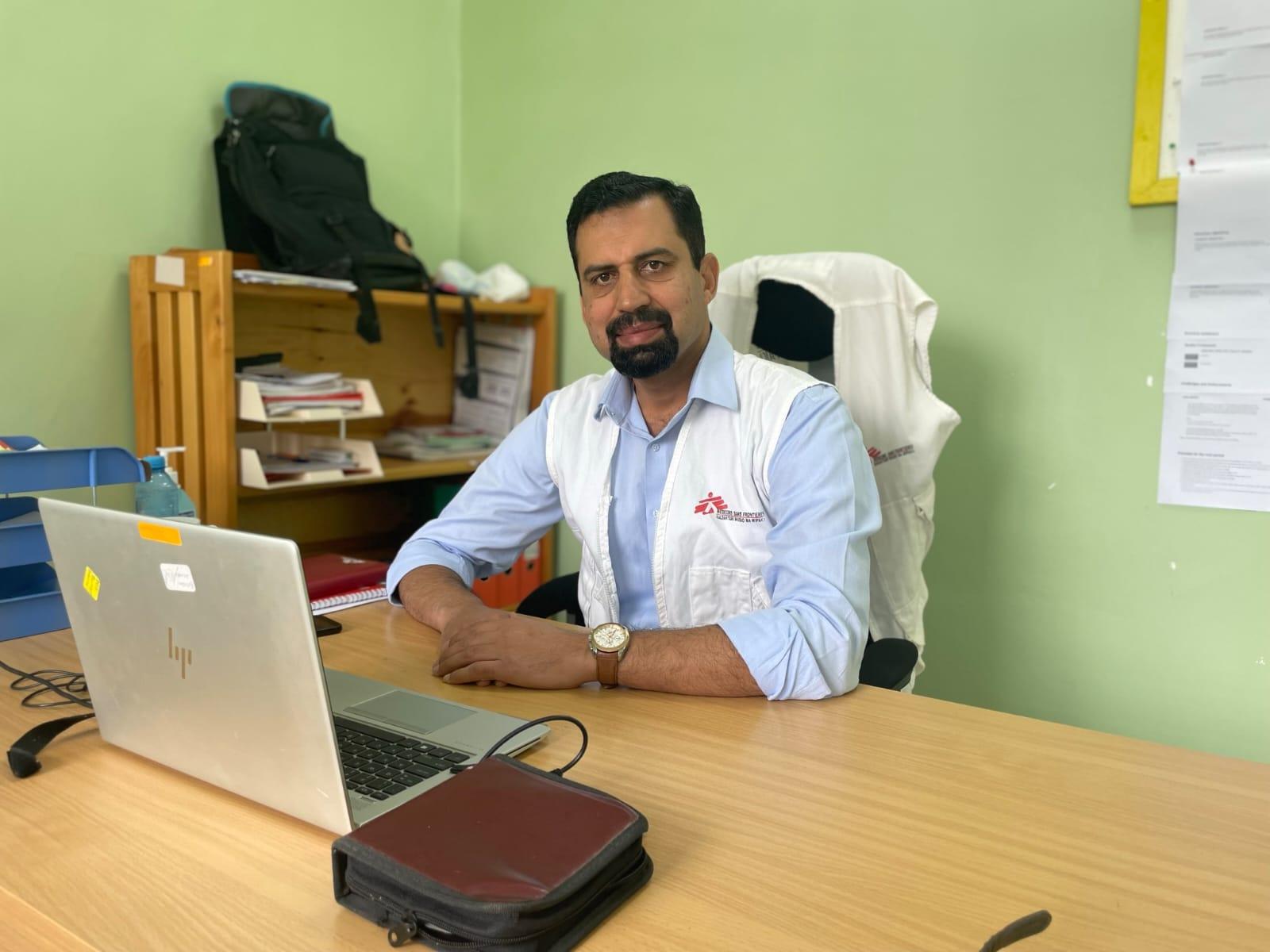“For a long time, I would watch TV and read a lot of articles that said that people around the world were in dire need, and this made me to want to join a humanitarian organization. Coming from Pakistan, not only did I want to support people from my country, but I also wanted to make an impact globally. I was practising law when I realized that I was more inclined to help needy and vulnerable people around the world, so in 2009 I joined MSF.
I first learned about MSF when we had challenges in my area and humanitarian organizations were not operational. However, I saw MSF trying to do various activities, despite the challenging situation. I decided to search online to get a glimpse of what they do and how they work, since I had no idea at that time. When I got to learn a lot more about how they operate and what they respond to, I applied for a job and started working with them.
I have now worked with MSF in two countries: Cameroon and Kenya. In Cameroon, I started as a deputy project coordinator and was later tasked to act as a project coordinator. MSF’s response there mainly involved emergency care and mother and child healthcare. We were also running a 24-hour ambulance service.
In Kenya, we are working with people who use drugs. Not only are we working on the medical side, but also on their integration into society. We also teach them about income generation activities. We are decentralizing our services in Kiambu town to make more services available to our patients.
The abuse of drugs here in Kiambu is high, coming after Nairobi and Mombasa. In August 2021, we did some mapping with LVCT- Health, a local CSO, and discovered that the number of people using drugs in Kiambu stood at 3,312. . We focus on providing our patients with Opioid substitution therapy (both Methadone and buprenorphine), mental health counselling, psychosocial counselling, outpatient services and, most importantly, empower them and teach them on income generating activities, since this group of people are neglected by their families, friends and the community at large. We believe that, with the help of the Ministry of Health, county government authorities, and staff, we will be able to continue providing these specific services for people who use drugs even after MSF is no longer here.
It is challenging to see how society neglects drug users. Personally, I think we should not hate the user but hate the drugs. This is an illness which should be treated like any other disease. We should focus on the treatment of this illness. With the help and support of society, we will make a positive change for both the sick and the community. I believe that the people who come after us will continue making the place better than they found it.
Working with people who use drugs was something totally new to me. In Kenya I also found a totally different culture from what I am used to, but I have interacted with good people and the staff I have worked with are talented and know their work well. They give you room to be heard as well as respect you. Seeing some of our previous patients working in this project really makes me happy since I can see the changes made to people’s lives just by listening to their stories.
Recently we’ve been doing networking and awareness-raising activities with different NGOs, partners, hospitals and the police. In Kiambu, I’ve witnessed many things, amongst both patients and staff. One
story that touched my heart happened in Karuri village, when we got a call for an ambulance. An expectant patient was in labour and in a critical situation. Although our ambulance was out at the time, we managed to get a car for this patient, and she got to the hospital just in time. We heard later that she had a successful delivery. My happiness was beyond words since this is something I saw and witnessed, even though I did not get to see her again. I’m glad that both mother and baby are well.
Being the project coordinator, using the resources given to me to improve drug users’ lives and seeing the impact of our work definitely keeps me moving.”
